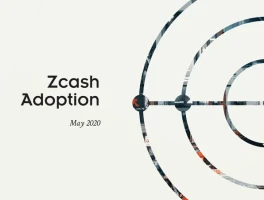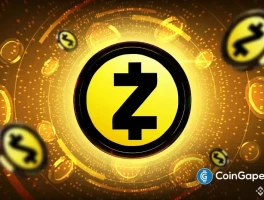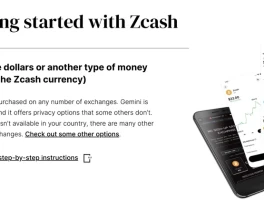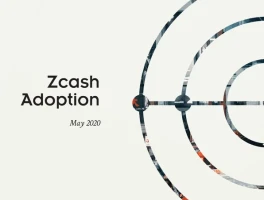On Friday, the digital world held its breath. The markets, already skittish, were hit by the digital equivalent of a meteor strike: a social media post from a world leader reigniting a global trade war. Within hours, $20 billion in crypto positions were vaporized. Red candles cascaded down charts like a digital waterfall of panic. It was a bloodbath, a stark reminder of how fragile confidence can be in the face of geopolitical chaos. I was watching the tickers scroll by, and honestly, I just felt this deep sense of exhaustion as giants like Bitcoin and Ether tumbled.
But then, something remarkable happened. Amidst the carnage, a single green shoot pushed its way through the scorched earth. A privacy-focused coin called Zcash (ZEC), which had plummeted 45% along with everything else, didn’t just stop falling. It reversed. It climbed. In fact, Zcash recovers to pre-crash highs following crypto market meltdown, clawing its way back from a low of $150 not just to its pre-crash level of $273, but to a new recent high of $291. While the rest of the market was still nursing double-digit losses, Zcash stood tall.
This wasn’t just a lucky bounce. This was a statement. In a moment of pure, unadulterated fear, when investors could have fled to anything, a significant number of them ran towards privacy. What does that tell us about the future we’re building?
A Flight to Substance
Let’s be clear: the recent Zcash price action is more than just a fascinating chart for traders to analyze. I believe we’re witnessing a fundamental shift in what the market values. For years, crypto has been dominated by hype cycles and meme-driven speculation. But the Zcash story suggests a growing hunger for something more tangible, for technology with a clear, human-centric purpose.
At its core, Zcash is built on a revolutionary cryptographic breakthrough called zero-knowledge proofs, or zk-SNARKs. Now, that sounds incredibly complex, so let's use a clarifying self-correction: in simpler terms, it's a way for you to prove that a statement is true without revealing any of the underlying information that makes it true. Imagine being able to prove you're over 21 without showing your driver's license, or prove you have enough money for a transaction without revealing your bank balance. That’s the magic Zcash enables for blockchain transactions, making the sender, receiver, and amount completely private.
And here’s the crucial part: people are actually using it. One of the most telling data points behind this rally is the steady climb in shielded transaction volume. This isn’t just traders flipping ZEC on an exchange; this is a signal of genuine adoption. Users are actively choosing to protect their financial data. This is the kind of breakthrough that reminds me why I got into this field in the first place—it’s technology in service of human dignity. When you add in institutional signals like Grayscale reopening its Zcash Trust, you see a powerful convergence: real-world utility is finally meeting institutional validation.
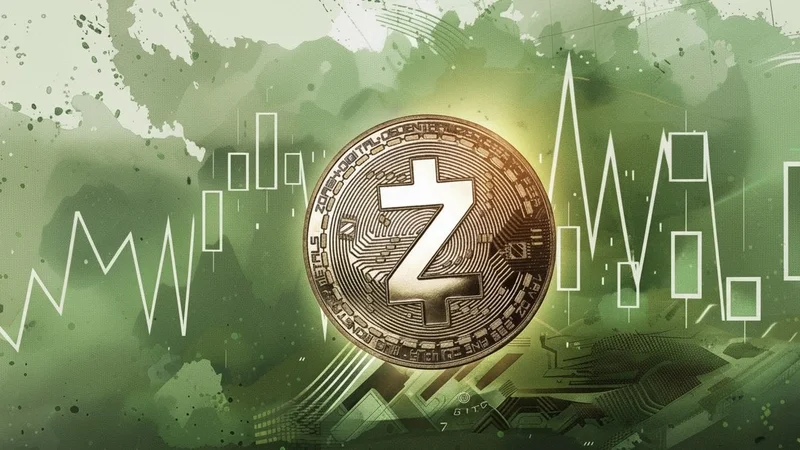
What are we to make of this? Is it possible that in a world of increasing digital surveillance and economic uncertainty, privacy is becoming the new killer app?
The Digital Safe Haven
For centuries, when empires trembled and currencies faltered, people fled to gold. It was a physical, tangible store of value, independent of any single government or bank. Some analysts are now comparing Zcash’s chart to gold’s recent rallies—a comparison bolstered by reports that the Zcash (ZEC) Price Rockets 250% to Multi-Year High, Targets Gold-Like 2025 Structure—and while the technicals are interesting, I think the analogy runs much, much deeper.
We're seeing the emergence of a new kind of safe haven—not for financial value alone, but for personal sovereignty. Think of it like the invention of the sealed envelope. Before it, messages were public. The envelope created a new space for private thought, for commerce, for relationships. Zcash and other privacy technologies are doing the same for our digital lives. They are creating the tools for a private economic sphere at the exact moment in history we need it most.
This is a paradigm shift of immense proportions—it means we are moving from a world where our every financial move is tracked and analyzed to one where we can choose to draw a curtain around our affairs, and this choice is being validated by the market in real-time. Of course, this power brings with it profound responsibilities. We must champion these tools for the freedom they enable for ordinary people while building social and legal frameworks to deter their misuse. The conversation can't just be about price; it has to be about purpose.
But the trend is undeniable. The market’s reaction wasn’t just a fluke. It was a vote. A vote for resilience, for substance, and for the fundamental human right to privacy in an increasingly transparent world. Where do we go from here, now that we know there’s a real, tangible demand for a private digital future?
This Isn't a Rebound; It's a Realignment
What we saw with Zcash wasn’t just a coin recovering its price. It was the market sending a powerful signal. In a moment of supreme chaos, when the flimsy narratives of hype and speculation were washed away, the technology that offered a real, fundamental value—privacy—is what endured. It’s a sign that the digital asset space is maturing, moving beyond its speculative infancy and beginning to price in things that truly matter: utility, resilience, and human freedom. This isn’t just good news for Zcash. It’s a glimpse of a more thoughtful, more durable, and more private future for the entire digital economy. And that, to me, is the most exciting chart of all.

